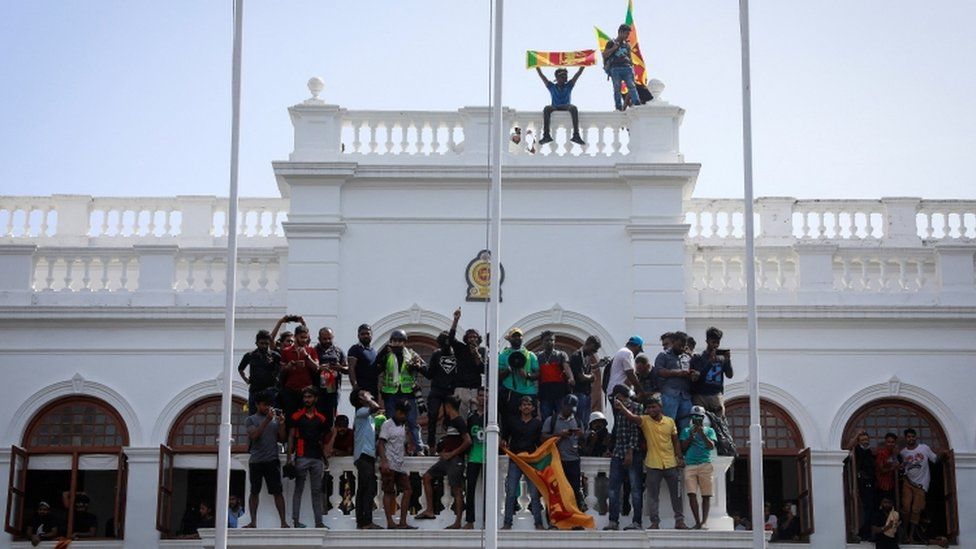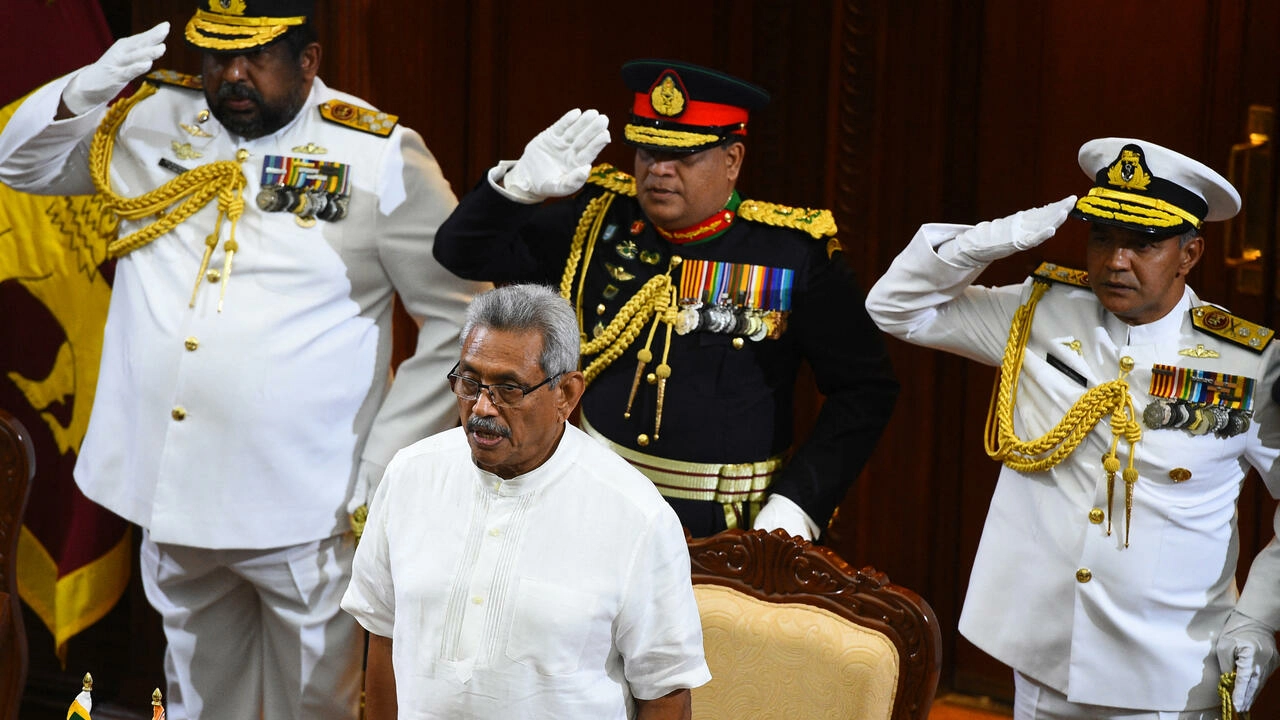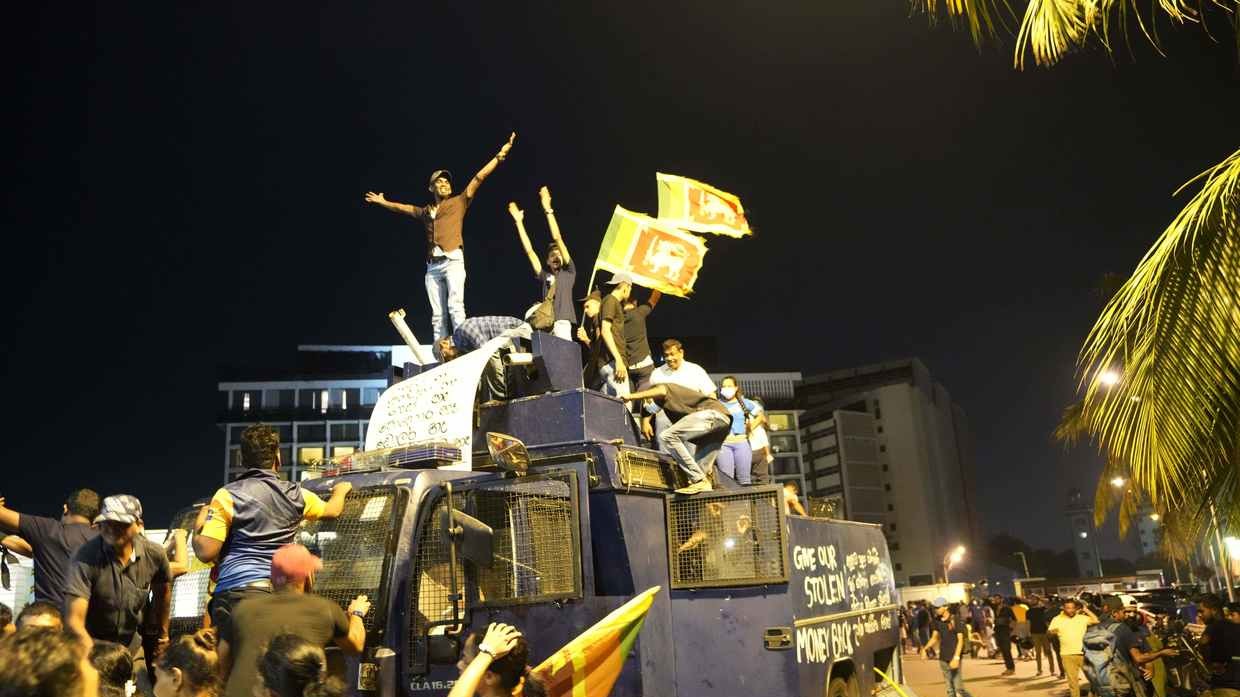This article is more than
5 year oldSri Lanka cracks down on Muslims

Sri Lanka has banned all kinds of clothing that covers the face and prevents identification, such as niqabs and burqas, a week after the Easter bombings that left more than 250 people dead.
The ban does not directly refer to Muslim female garb but is seen as a clear reference to the type of dress.
A statement from the office of the President said the ban was being introduced from today under new regulations brought under a state of emergency in response to the Easter bombings in the capital, Colombo.
President Maithripala Sirisena said he was using emergency powers to ban any form of face covering in public “to ensure national security”.
Only a small number of women in Sri Lanka wear the face-covering niqab.

Sri Lanka’s Justice Ministry had already been considering introducing laws preventing wearing of the burqa and niqab but had expedited the ban.
On Sunday, a group of Muslim leaders called on community members to refrain from wearing clothing in a manner that obstructs identification of people.
Sri Lanka’s churches also remained shut on Sunday, forcing Christians to say prayers of grief in private over the Easter suicide attacks the country’s Roman Catholic leader called “an insult to humanity”.
Fearing a repeat of the Easter Sunday bombings of churches and hotels in which 253 people died, the Archbishop of Colombo, Cardinal Malcolm Ranjith, held a private Mass after cancelling all public services.
Amid heavy security imposed across the country, a vigil was also held outside St Anthony’s Shrine in Colombo at 8.45am, the moment the bomber struck the church, killing dozens of worshippers.
“Today during this Mass we are paying attention to last Sunday’s tragedy, and we try to understand it,” the cardinal said at his official residence where Mr Sirisena and Prime Minister Ranil Wickremesinghe were among the small congregation.
“We pray that in this country there will be peace and coexistence and understanding each other without division,” he said.
“What happened last Sunday is a great tragedy, an insult to humanity,” he added.

Thousands of Sri Lankan troops remained on the streets, guarding churches and mosques for the symbolic day.
Security forces also carried out new arrests, a day after at least 15 people were killed in a raid on a jihadist hide-out where suicide bombers blew themselves up.
Police said they searched the family home of two of the bombers and arrested one of their brothers.
Elsewhere, more suspects were detained, bringing to 150 the number of people arrested since the bombings.
The Prime Minister said security forces had killed or arrested most of the jihadists linked to the attacks, which he said were carried out by a “small, but a well-organised group”.
“Most of them have been arrested. Some have died,” Mr Wickremesinghe said in a statement. “Now we are able to return to normality”.

Authorities say they are also seeking about 140 followers of the Islamic State group.
Two of the latest suspects arrested, Mohamed Saadik Abdul Haq and Mohamed Saahid Abdul Haq, were on a list of six “most wanted” radicals issued on Thursday.
They were wanted for the December 26 desecration of Buddha statues in the central town of Mawanella, the act that first brought to prominence the National Thowheeth Jama’ath (NTJ) group, which has been blamed for the Easter bombings.
Keywords
Newer articles
<p>Diddy's homes were recently raided in Los Angeles and Miami by Homeland Security.</p>
India calls for ‘immediate de-escalation’ amid Israel-Iran tensions
Trump offers conditions for Ukraine aid renewal
Why Israel is risking a dramatic escalation with Iran
Bianca Censori stuns in extreme v-neck dress
Israel’s War Leaders Don’t Trust One Another
US helped Israel take down ‘nearly all’ Iranian drones and missiles – Biden
‘Their tactics have changed’: Russia’s bid to blow apart Ukraine’s power grid
Iron Dome, David’s Sling, Arrow: Israel’s air defense against Iran, explained
OJ Simpson to be cremated and no plans to donate brain to science, lawyer says




